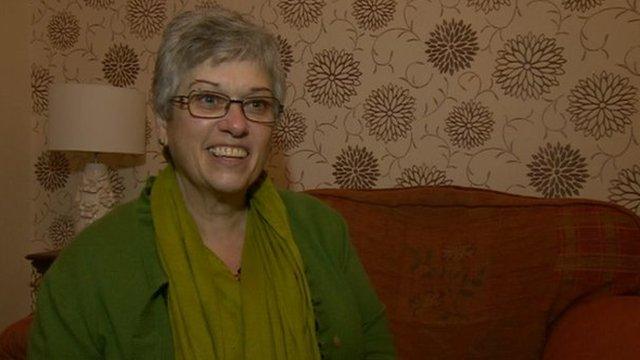Rise in Derbyshire Fire and Rescue Service obesity rescues 'worrying'
- Published
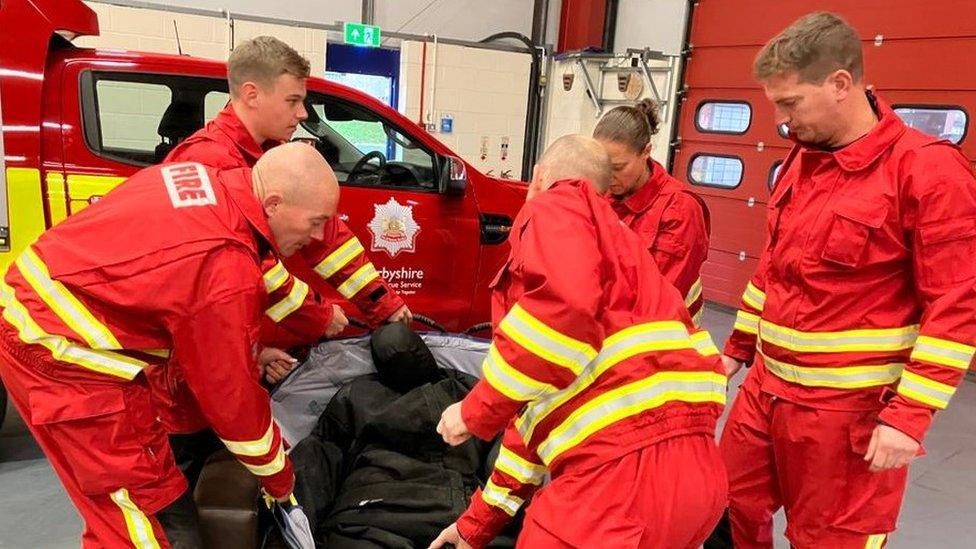
The fire service says the increase, which is being linked to rising national obesity figures, is "worrying"
The number of rescues performed by firefighters on obese people who are too large to move on their own has almost quadrupled in one county, figures suggest.
Derbyshire Fire and Rescue Service attended 278% more bariatric rescues in the last year than in 2018-19.
Fire service figures doubled in Nottinghamshire and Leicestershire during the same period.
The "worrying" rise has been linked to rising obesity levels nationwide.
'Significant concern'
Bariatric rescues involve emergency services coming to the aid of severely obese people, who are often stuck in their homes.
In Derbyshire, firefighters rescued a total of 87 obese people in 2021-22 who had found themselves stuck and unable to move.
This had increased from 23 rescues three years before.
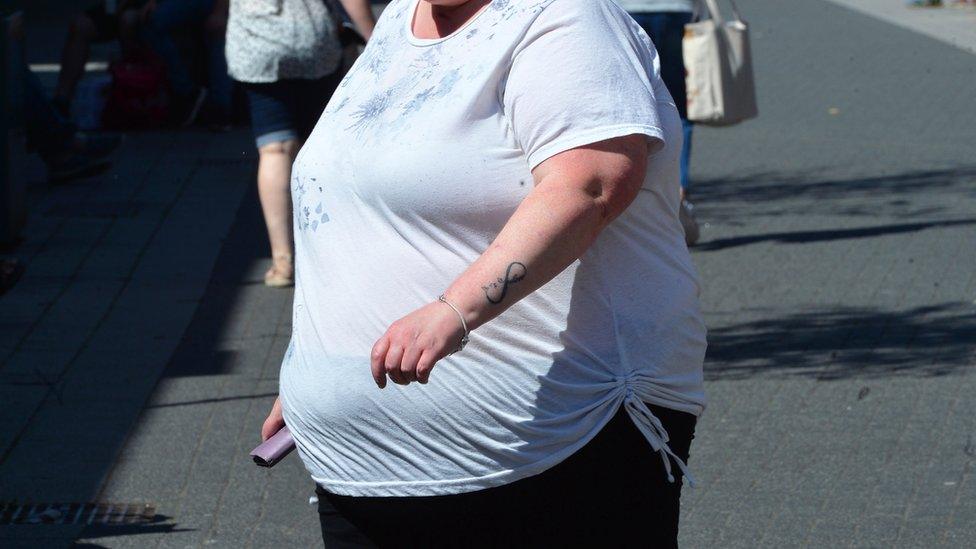
A spokesperson for the fire service linked the rise in obesity levels to the pandemic
Derbyshire Fire and Rescue Service said the increase was "worrying" and that it was "putting increased dependence on the resources of fire services", which were "already seriously stretched".
A spokesperson linked the rise to the pandemic, which has seen a rise in adult and childhood obesity.
They added: "We are mobilised to support the ambulance service with our specialist rescue capabilities.
"All of our crews are trained to ensure all rescues of this nature are done safely, respectfully and sensitively.
"The type of rescue will depend on the needs of the situation and we work closely with our partners to ensure all of the medical and rescue needs of the situation are met.
"This rise is a significant concern."
They said the service was working closely with local health boards to try to arrest the "worrying trend".
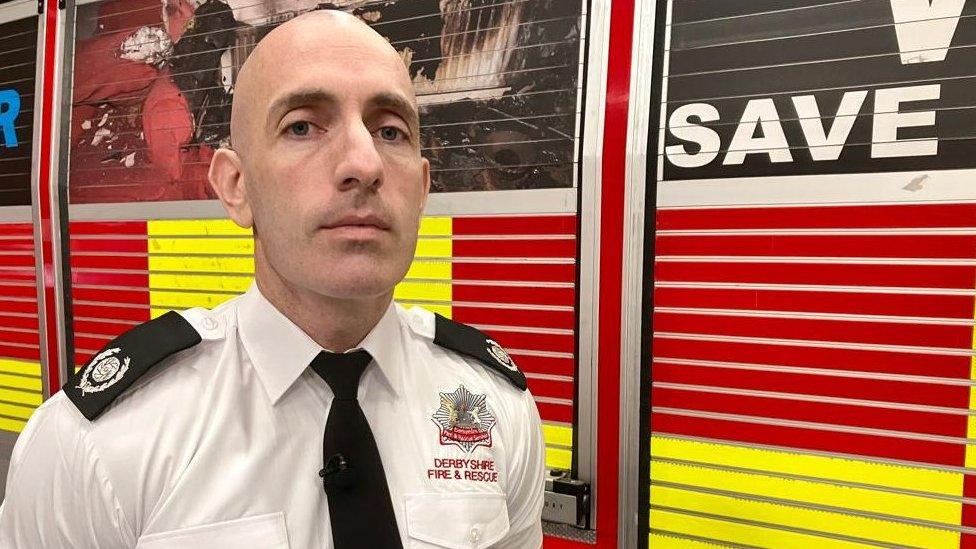
David Diggins said fire engines were spending more time carrying out such rescues
Group manager David Diggins added: "Our appliances, our fire engines are spending more time assisting other agencies to carry out these rescues and that just diverts us away from house fires and RTCs.
"Now this does form a small part of our work but any capacity we have, it does stretch us even further."
Tam Fry, chair of the National Obesity Forum, said he was not surprised by the data.
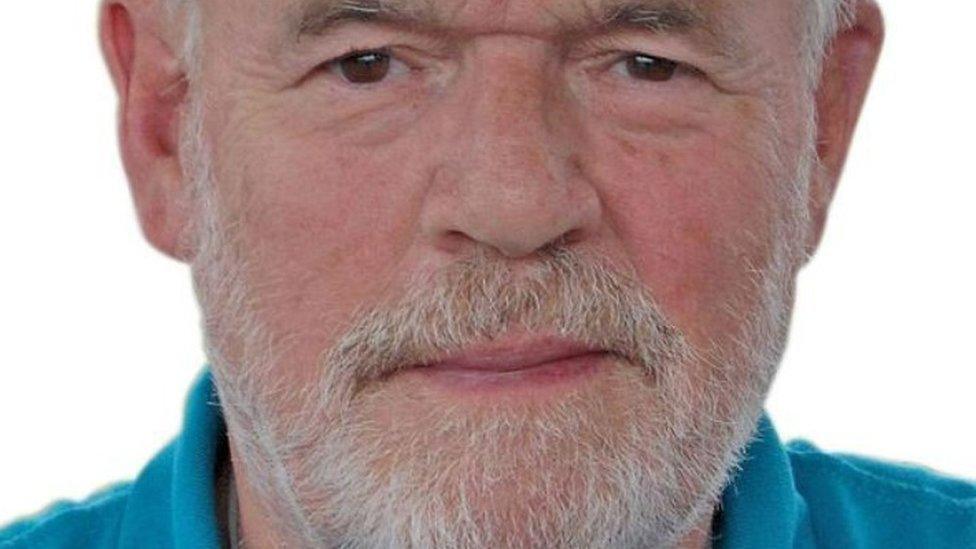
Tam Fry says half of the population is likely to be obese by 2050
He said: "Obesity has risen every year since 2000 and we are on course to have 50% of the population obese by 2050.
"Unfortunately we have three grades of obesity in the UK currently and the uppermost - severe obesity - is rising exponentially.
"It's a huge problem which requires the costly re-equipping of hospitals, ambulances and additional staff needed to look after severely obese people."
Bariatric rescues have been rising year-on-year across the East Midlands, with 106 recorded by Leicestershire Fire and Rescue Service in 2021/22, compared with 53 in 2018/19
Meanwhile, Nottinghamshire Fire and Rescue Service's figures rose from 23 to 55 over the same period.
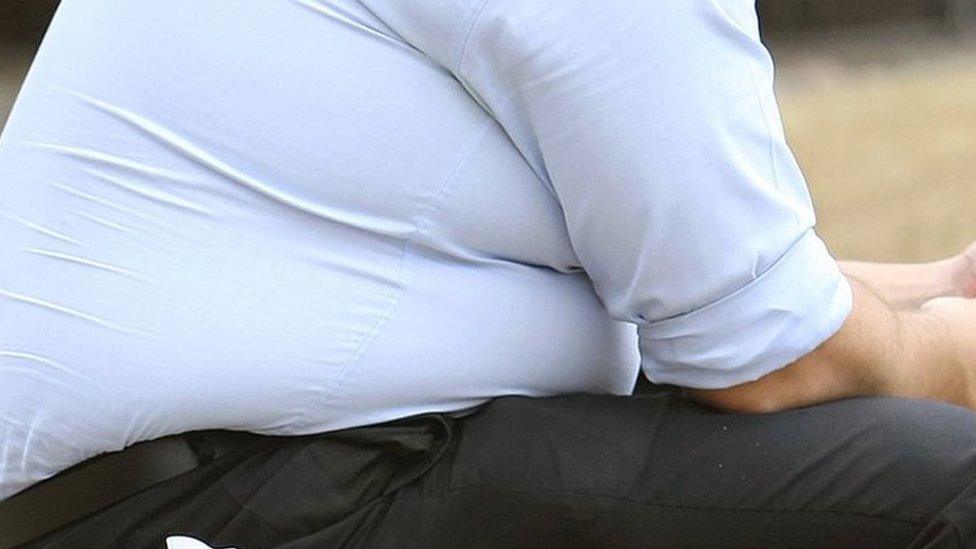
Derbyshire Fire and Rescue Service is working with local authorities to combat the issue
According to Derbyshire County Council, external, 66% of adults in the county are classed as overweight or obese.
This is higher than national findings, which estimate that 64% of British adults are now overweight, including around 28% percent who are obese.

Follow BBC East Midlands on Facebook, external, on Twitter, external, or on Instagram, external. Send your story ideas to eastmidsnews@bbc.co.uk, external.
Related topics
- Published27 August 2018
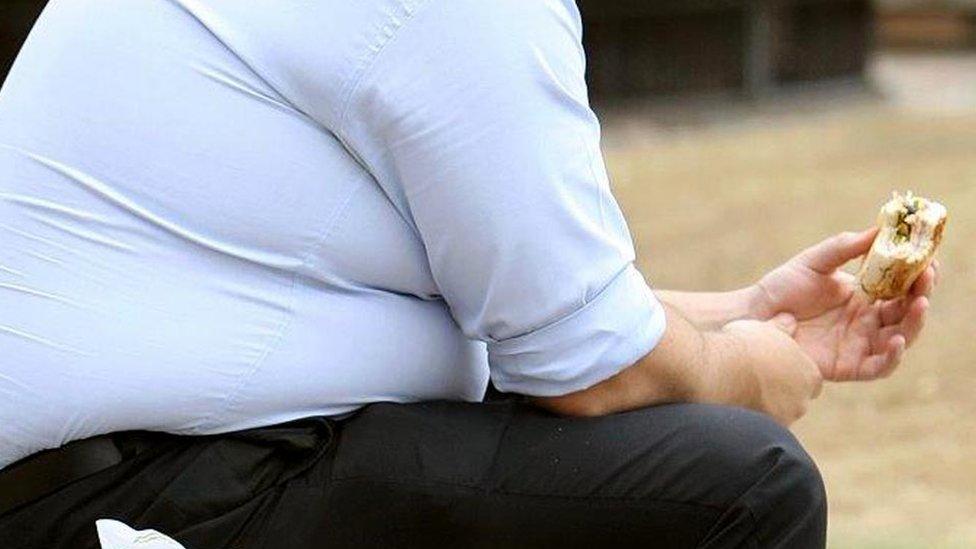
- Published19 September 2016
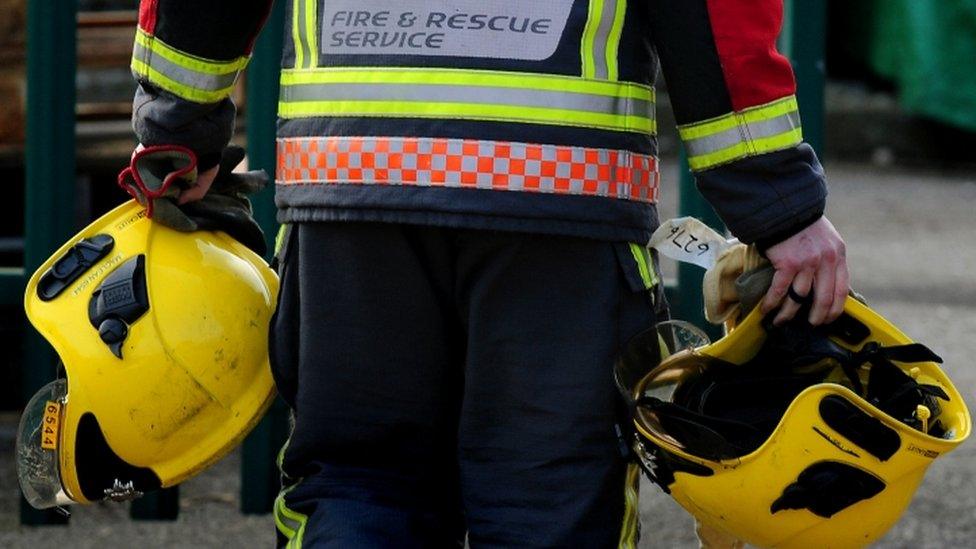
- Published17 January 2014
